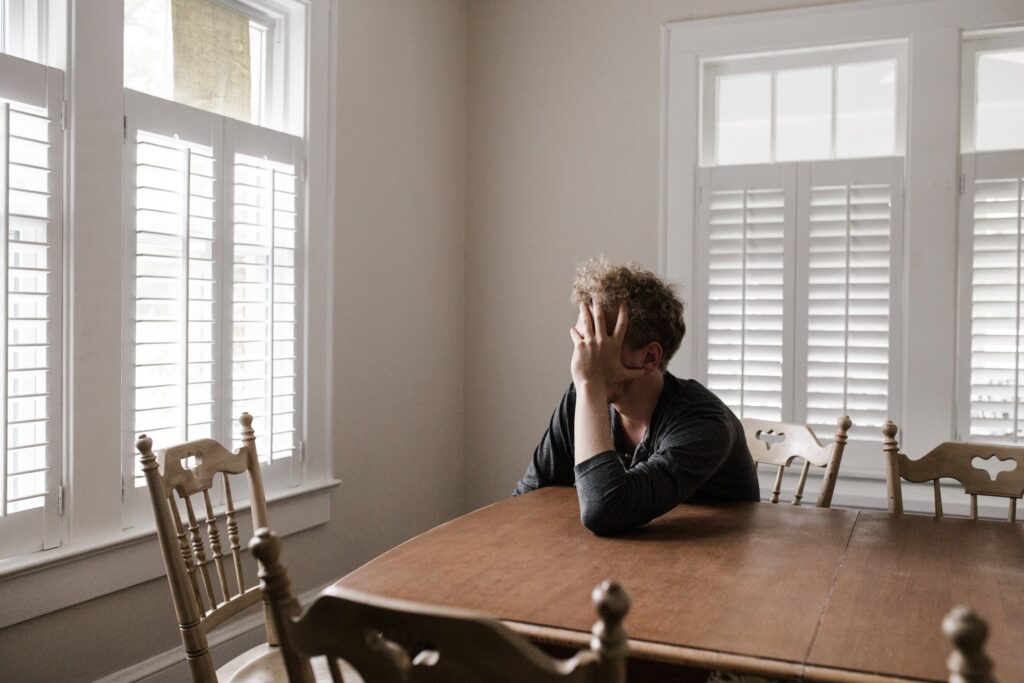
It’s been a stressful year for all of us and the pandemic continues to cause health problems all over the country and the world. Unfortunately, this virus has contributed to a massive uptick in mental health issues across the United States.
According to the Center for Infectious Disease Research and Policy (CIDRAP), depression levels have tripled among U.S. adults – in all demographic groups — due to COVID-19 stressors. For those with financial worries, the rise is much higher.
The Boston University study involved data from 1,441 respondents to a COVID-19 Life Stressors Impact on Mental Health and Well-Being Survey, conducted from March 31 through April 13, when 96% of the U.S. was under COVID-related lockdowns.
“Persons who were already at risk before COVID-19, with fewer social and economic resources, were more likely to report probable depression, suggesting that inequity may increase during this time and that health gaps may widen,” said Catherine Ettman, a BU doctoral student. “We would hope that these findings promote creating a society where a robust safety net exists.”
Sadly, the authors predict that the prevalence of depression will continue to spread over time and the symptoms will be long-lasting, making mental health awareness and treatment even more vital.
Thankfully, there are holistic approaches to healthcare that can help combat these serious mental concerns.
Acupuncture for Depression
Acupuncture is a traditional Chinese healing practice that is primarily used to relieve pain but has been effective to treat other serious conditions – including depression.
A 2013 study by MacPherson et al showed that acupuncture treatments for depression were 33% more effective than counseling and pharmaceuticals. During treatment, needles are inserted into the skin along meridians, pathways through which “qi,” the life-energy, flows. Acupuncture helps balance sympathetic and parasympathetic nerve energies and aids in releasing energetic blocks.
Acupuncture helps release energy and centers internal communication between organs and has a wide range of mental health benefits:
Acupuncture for insomnia – Acupuncture is an effective treatment for insomnia, as well, which is often a major component of depression. In fact, one of the common signs of depression is an inability to fall and stay asleep. It’s a vicious cycle because people with insomnia have a higher risk of depression, and depression can trigger sleep problems in the first place.
Acupuncture releases endorphins – Endorphins are chemicals produced by the body to relieve stress and pain. They also work as a natural pain killer in the body. When needles are inserted into sensory nerves just below the skin’s surface, the body stimulates a response in the immune system, which will increase circulation to that specific area of the body and trigger an endorphin release.
Acupuncture provides a relaxing mood boost – The majority of acupuncture patients find their treatment to be therapeutic and often gently fall asleep during the session. Because this holistic approach aims to make the entire body well, not just treat a specific symptom, patients benefit from overall increases in health and wellbeing.
The BU authors noted that depression rates no more than doubled after previous large-scale traumatic events such as the Ebola outbreaks and the September 11, 2001, terrorist attacks. They have called for policymakers to reduce the effects of COVID-related stressors, such as extending eviction moratoria, helping individuals who can return to work safely, and providing universal health insurance that isn’t tied to employment.
The pandemic continues to rage on and it’s imperative that we collectively take our mental health seriously. Acupuncture for depression is a great way to improve your mental wellbeing and get through these trying times. It’s important to note that when it comes to acupuncture and depression, treatment is most effective over the course of several treatments.
If you’re looking for acupuncture for depression in Rochester NY – contact Dr. Sadlon today.